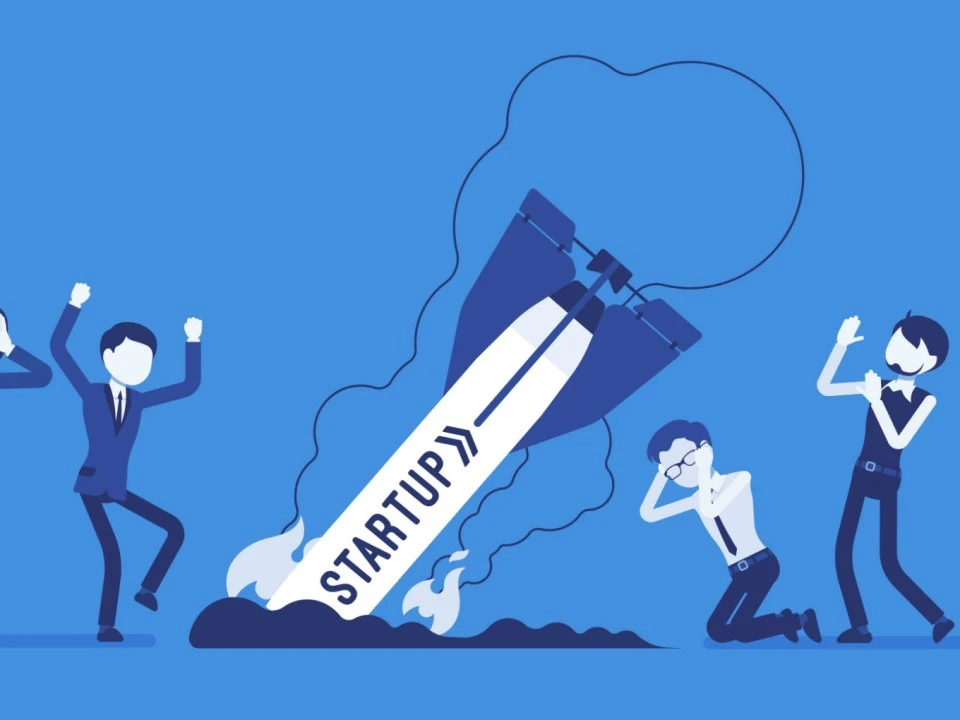
“What you think, you become.” This phrase, credited to Buddha’s wisdom, captures the attitude of a good leader—but what is a leadership mindset, and what does it entail?
At its foundation, a leadership mentality is a collection of ideas and cognitive processes that allow an individual to guide and motivate others toward attaining shared objectives. Embracing this perspective may improve the way you address obstacles and utilize opportunities in your career.
Here’s how having a stronger and more deliberate leadership approach causes a ripple effect through your team that promotes success for your business as a whole.
The Importance of a Leadership Mindset
Leadership is significantly more than merely possessing a position of power. It’s about creating a way of thinking that fosters good change and develops resilient teams. When leaders have an effective leadership attitude, it generates settings of trust, cooperation, and continual learning. Being leadership focused is highly useful for various reasons:
-
Team performance: Leaders may urge their teams to go beyond perceived constraints, fostering innovation while viewing problems as chances for progress.
-
Communication: Good leaders foster open communication by actively listening to team members and developing avenues for transparent two-way conversation.
-
Adaptability: With a leadership attitude, leaders become well-equipped to negotiate change in the face of uncertainty to steer their teams through transformative phases with strength.
-
Long-term vision: Leaders may see beyond current obstacles and exercise strategic planning, retaining their focus on long-term goals.
-
Emotional intelligence: Well-equipped leaders can comprehend and control their own emotions while identifying those of their team members. This awareness can lead to:
- Better conflict resolution
- Increased empathy
- More effective team motivating
- Improved decision-making
A leadership mentality organically motivates everyone to offer their best within their function because it creates settings where everyone feels appreciated. Company success is impossible without leadership that focuses, and honors, every contributing factor—especially your team members.
Developing a Leadership Mindset: 7 Key Strategies
These seven stages give a framework for establishing a leadership mentality and increasing your talents as a leader.
1. Embrace Continuous Learning

The core of this approach is a dedication to lifelong learning. Leaders who perceive every event as an opportunity for progress display a sense that there’s always space for improvement—and that lessons can be gained from every accomplishment as well as every failure.
To Embrace Continual Learning
-
Stay open-minded to new ideas and opinions
-
Seek out varied learning options like workshops and seminars
-
Study leadership thoroughly, researching up on the intricacies of your sector
-
Recognize that useful ideas may come from various levels of your company
-
Reflect on your experiences at frequent intervals
Remember: Just about anything can be a learning experience, even if the insights you get just show you’re moving in the correct path.
2. Build Self-Awareness
Effective leaders acknowledge their own talents, shortcomings, and prejudices. They also commit to frequent appraisal of their principles, never falling into stagnation in their work or as an individual.
Habitual self-reflection and careful introspection might help you build a deeper sense of self-awareness. Begin the practice of:
-
Regularly reviewing your skills and opportunities for improvement
-
Seeking corrective and improvement comments from peers, mentors, and team members
-
Keeping a record to trace your thought processes behind each decision
-
Practicing mindfulness to be present and aware of your thoughts and emotional experiences
It may also benefit to take personality or temperament evaluations to understand more about your specific leadership style and personal preferences.
3. Cultivate Emotional Intelligence
The capacity to sense emotions properly, utilize them to assist cognition, and examine the significance behind different emotions is a benefit to anybody, but it’s especially beneficial for individuals in leadership roles.
Leaders with high emotional intelligence, or EQ, comprehend the power of emotions as they effect the social dynamics in the workplace. Good emotional intelligence lends itself to adaptation and permits more effective navigation of even the most complicated, high-stress circumstances.
Your EQ will begin increasing as you
-
Practice noticing and naming your own emotions
-
Prepare and implement stress management solutions for inevitable problems
-
Engage in responsive communication that acknowledges others’ experiences
-
Tap into empathy by looking at things from many viewpoints
-
Learn to offer and accept constructive and encouraging feedback
These strategies may help you in team connections, organizational choices, and interpersonal dynamics in a broad range of settings. Leaders with higher EQ also tend to manage their teams more judiciously—a cornerstone of team morale.
4. Foster a Growth Mindset

Growth and leadership mindsets support the perspective that failures are learning opportunities rather than setbacks, and they highlight the belief that talents and intellect can be obtained via work and study. As a beginning point, leaders may benefit immensely by reviewing their connection to growth and how it’s framed inside the leadership role. Ask yourself:
-
Do I seek out possibly unfavorable facts or helpful feedback to guide improvements?
-
Do I reward effort and growth in addition to acknowledging pleasant outcomes?
-
Do I regard organizational hurdles as unpleasant threats to bigger goals?
-
Is there a large gap between the presentation of a difficulty and efforts made toward positive resolution?
-
Do I use language that encourages a development mentality for others as well as myself?
Consider your comments as essential knowledge you may utilize to reinforce a growth mentality. A business culture that prioritizes growth is more likely to drive innovation and measured risk.
5. Develop Vision and Strategic Thinking
Leaders need to maintain their focus on the larger picture. This demands a clear vision—and plan—for the future. Consider how you may strengthen your visioning and strategic thinking by putting into your schedule:
-
Time devoted for introspection and long-term planning
-
Research of industry trends and prospective disruptors
-
Planning meetings to prepare for potential future situations
-
Daily actions that add directly to your long-term aims
-
Collaboration sessions that consider multiple viewpoints
Business plans are typically most solid after examining conditions from diverse vantage points. Your own strategic talents can increase greatly if you go out of your way to listen to and learn from as many sources as possible.
Read Also: Impact of Female Leadership in Tech
6. Build Leadership Resilience
Taking on a position of power might entail encountering difficulty in your career. This is when resilience becomes vital. Mental strength is crucial to a leadership attitude, helping you to bounce back from events that vary from your ultimate aims.
Resilience is like a muscle—it can take committed time and effort to build. Consider how you might deliberately establish a solid support network of mentors, peers, and friends to give a hand adversity and difficulty hits. Seek to cultivate the habits for resilience building by:
-
Maintaining a healthy work-life balance to prevent burnout
-
Incorporating rest and stress management practices into your routines
-
Focusing on what you can control and accepting what you can’t
Perhaps the most effective method to develop resilience is to reframe obstacles as transient and circumstance specific. It’s a lot simpler to move gracefully through setbacks when they don’t look permanent or prevalent. Oftentimes, this demands a shift in perspective and outlook.
7. Empower Others

Good leaders take measures to attain their full potential; great leaders help others do the same. Empower your team at every level with intelligent strategies, such as:
-
Career path goal setting and built-in chances for skill development and advancement
-
Moments of acknowledgment for team members’ contributions and successes
-
A secure atmosphere where teams feel comfortable expressing ideas and taking risks
-
Clearly defined roles that allow every team member to exhibit potential for accomplishment
-
Open forums that foster collaborative decision-making
Wherever feasible, provide as much trust as is reasonable for each function without compromising required advice. When your team members experience liberty and trust in their job, they display superior performance, step up, and deliver; this is substantially more inspiring and empowering than micromanaged or overly restricted work environments.
Ultimately, focus on building the skills that establish confidence and capacities with your team members. Take advantage of every chance to encourage and support the wonderful job they do currently—not only when they go above and beyond expectations.





